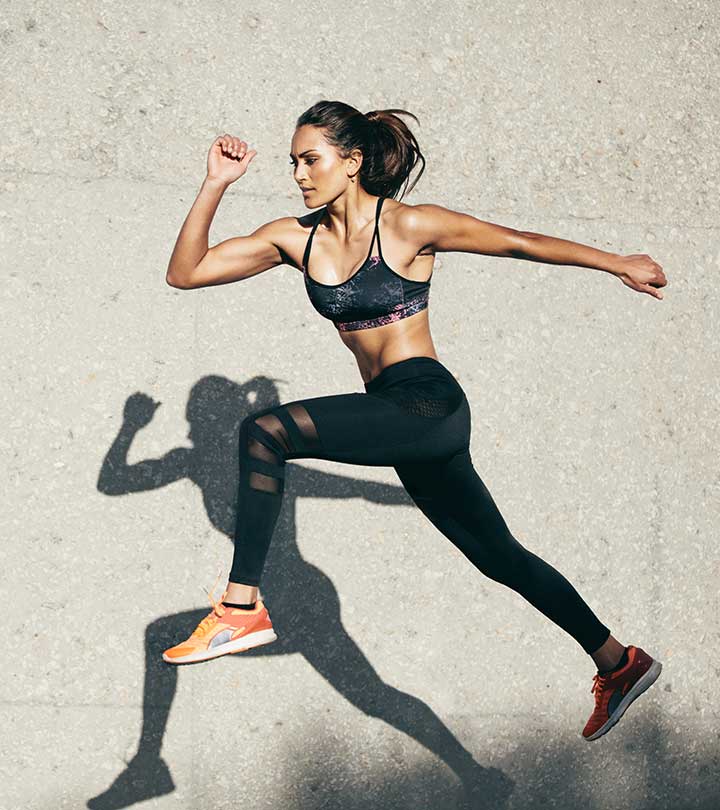You’re a competitive athlete or a fitness buff. You’ve established a consistent exercise regime that ensures you get enough strength and cardio training every day. However, there is more to keeping your body in tip-top condition than a strict training regime.
You need to take care of what you consume, including what you drink. It would help if you also give your body adequate time to recover from rigorous physical activity. Some health aspects can help you stay on top of your game.
-
Table of Contents
Vitamin Intake
The importance of vitamins to the normal functioning of your body cannot be overstated. Vitamin C’s role in boosting immunity, preventing many chronic diseases, and slowing the deterioration of brain function brought about by aging is well documented. However, the other less-celebrated vitamins are just as vital.
Vitamin D plays a crucial role in your overall health, from your skin to your brain. Without this vitamin, your body will not be able to synthesize calcium from the food you eat. Calcium is what keeps your bones healthy. But that’s not all; Vitamin D helps fight inflammation and improve the health of your muscles.
You may have heard it said that Vitamin D comes from the sun, which is valid to a certain extent. Sunlight does convert a chemical present in your skin into this vitamin. However, what happens when the weather changes and you cannot enjoy adequate sunlight exposure? You can obtain Vitamin D from certain foods, but there aren’t too many to choose from; milk, specific types of fish and fortified cereals.
To be sure you get the requisite quantities of Vitamin D, especially during winter, you can resort to supplements. If you have trouble getting capsules down, you can try a vitamin D gummy. These chewable supplements will ensure you get all the health benefits in a more palate-friendly form.
-
Protein Consumption
It is impossible to gain the physique you require to be a competitive athlete without proteins. Proteins are the building blocks of muscle. When you consume proteins, they are broken down into amino acids; these are synthesized by the body to create new proteins.
There are many sources of protein. Vegetarians and vegans can find it in beans and other kinds of legumes. If you’re not into plant-based diets, you can obtain your protein from fish, chicken, beef, and other kinds of meat. Professional athletes will want to get their protein without the prospect of adding to their body fat. This reason is why many hold their protein shakes dear.
Proteins will help you build and maintain muscle mass to ensure that your activity doesn’t result in muscle wastage. If you don’t take in enough protein, your body will break down the protein you have in your body, leading to the said muscle wastage. Besides growing your muscles, protein works to boost your metabolism and lower your appetite, discouraging you from taking on unnecessary calories.
-
Hydration
During your training sessions or in the course of competitive sports, you will lose a lot of water through sweat. It helps if you replenish your water levels by hydrating yourself generously before, during and after your sessions. Your water intake should be determined by the intensity of your workout, among other factors, including your BMI and exercise frequency.
You can use the formula below to calculate your recommended daily water intake when you’re working out intensely.
Body weight (pounds) x 1 = water intake (Oz)
If your level of activity is low, multiply your body weight by 0.5.
To keep your body well hydrated, you need to know more than just how much to drink. It would also be best if you drank at the required time intervals. Ingest at least 16 ounces of water two hours before you hit the gym, track, or swimming pool.
Top up with another eight ounces half an hour before you begin your session. During your session, drink the same amount of water every 15 minutes. Immediately after your session, chug down another eight ounces.
-
Diet
As a top athlete, your diet should be designed to build muscle and help you perform at the highest level possible. The ability to push your body beyond its limits in training or on game day will depend on whether you have fueled up with the correct quantity of energy-giving foods. What you eat also determines how long you remain fit enough to indulge in our preferred discipline. With the proper diet, your muscles will recover faster from workouts, and you will be able to bounce back faster from injury.
-
Rest Days
To obtain your fitness goals and perform at your peak, you need to allow yourself time to rest. When you take time away from your busy schedule to rest, your muscles will have ample time to shake off the post-workout soreness. You can have an active rest day and incorporate yoga or a light walk.
The Best of the Best
Even if you’re not the swiftest or most talented in whatever discipline you indulge in, you can still emerge at your best by taking these steps into account. Eat well, stay hydrated, and don’t forget your vitamins. These factors could be inhibiting you from being the best in your chosen sport.












